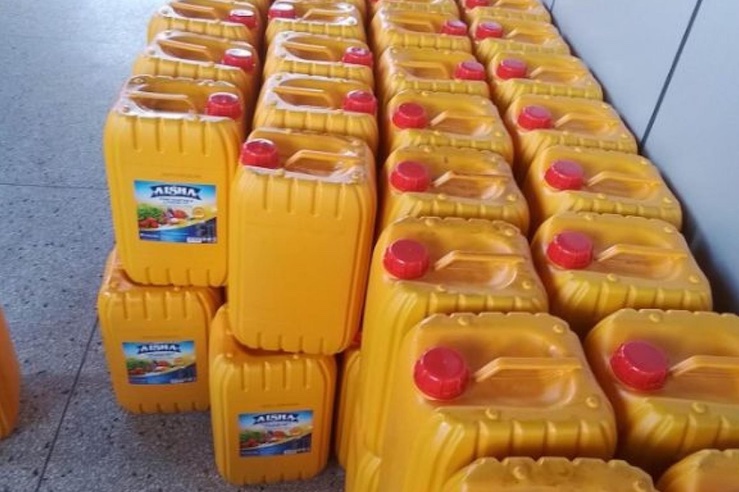Uganda Revenue Authority (URA) confiscated over 1,000 jerrycans containing cooking oil declared as destined for the Democratic Republic of Congo but instead found diverted to Nalukolngo, Rubaga Division in Kampala.
The jerrycans were retrieved from a truck, registration number UBE591X/UAR571C. The truck diverted to Nalukolongo in the disguise of parking, according to URA. The revenue body used the incident to describe the commonest forms of smuggling used to evade taxes.
It takes on many forms, including under-declaration, where the importer declares less quantity than the actual goods being imported; round-tripping, where goods are taken to a neighbouring country and returned through porous borders; misclassification, where goods are declared under a different class of imports, particularly to attract lower rates of tax with the intent to reduce the tax liability; among others.
Another common form of smuggling is dumping, where individuals transporting goods through foreign borders don’t wait to reach the destination but instead manoeuvre around the system and sell them within the country of transit. This was allegedly the case with the Nalukolngo incident.
The central monitoring center (CMC) tracking team at the URA was alerted about the tampered seals. This alert was cascaded to the rapid response unit, which located the truck and found both the electronic and metallic seals broken and some goods offloaded.
“The driver and off-loaders escaped to the nearby bushes, abandoning the truck and empty jerrycans of cooking oil,” explained URA.
The truck was towed to the URA headquarters in Nakawa, where thorough verification revealed four empty jerrycans of cooking oil, nine that had been half-emptied, and over 1,000 that had broken seals awaiting emptying.
The Regional Electronic Cargo Tracking System (RECTS) allows for tracking transit goods for revenue authorities in Kenya, Uganda, Rwanda, the Democratic Republic of the Congo, and South Sudan on a single platform, with Burundi joining soon.
Once transit goods are released from the port, they are equipped with RECTS seals, which enable real-time visibility at CMC. This centre handles and responds to any security warnings generated by the seals.
The items are tracked all the way to their destination thanks to cooperation among the partner states. This has been effective in managing goods in transit, significantly enhancing goods accountability, and reducing cargo transit time.






